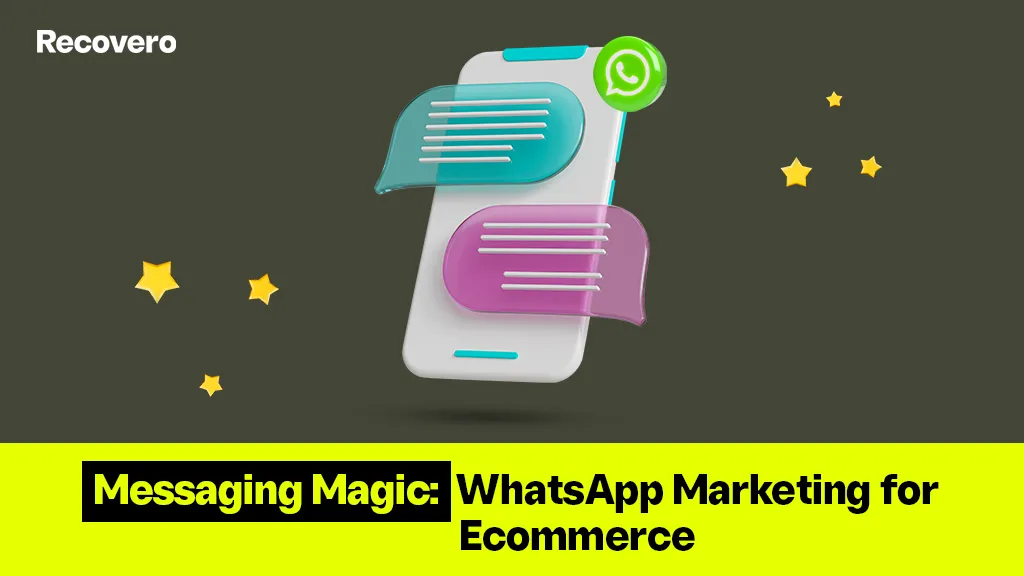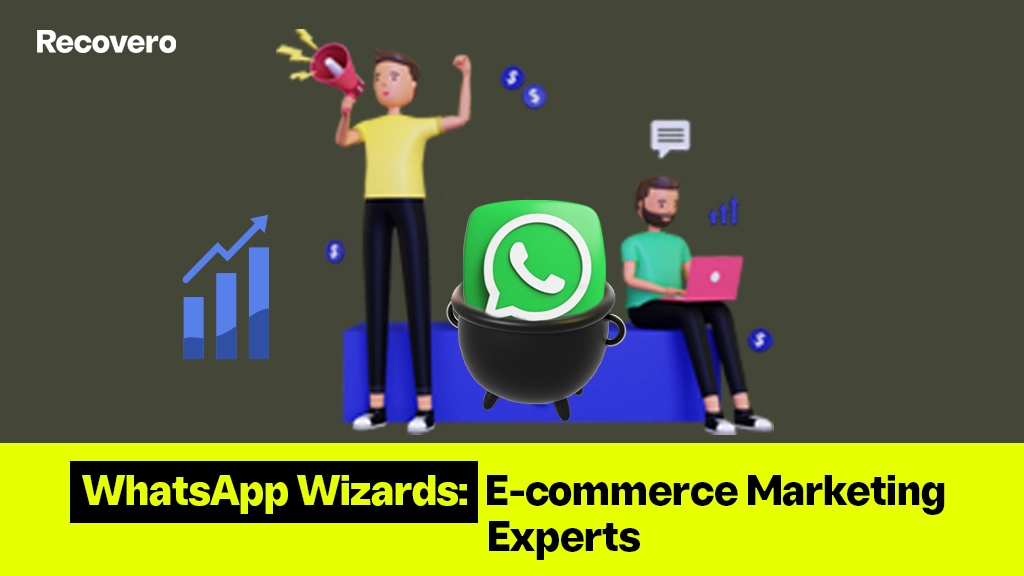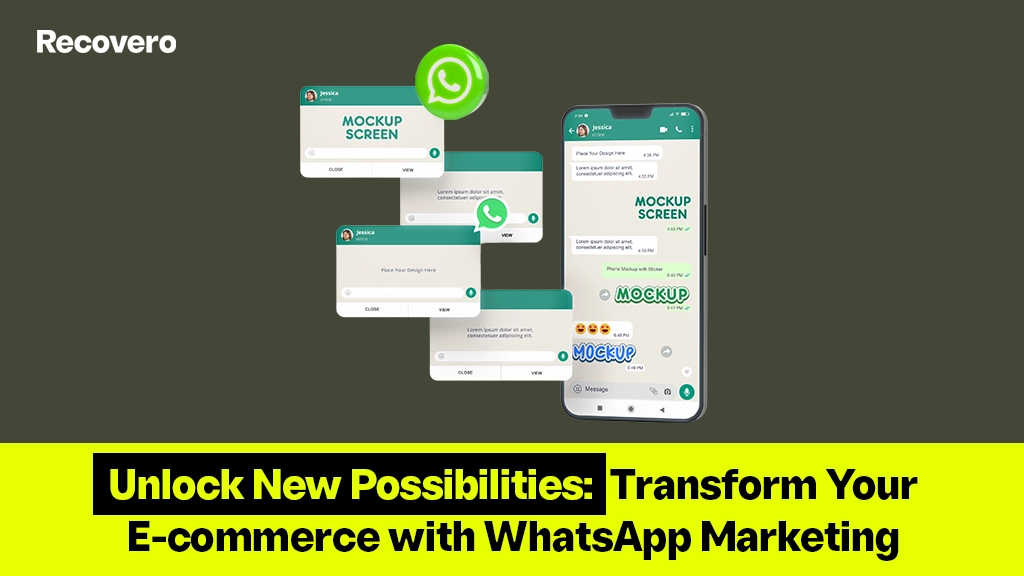In the world of e-commerce, effective marketing with WhatsApp Business API enhances a crucial role in
- driving sales,
- engaging customers,
- and building brand loyalty.
With the rise of messaging apps as popular communication channels, businesses are exploring new avenues to connect with customers. One platform that has emerged as a powerful tool for e-commerce marketing is the WhatsApp Business API.
This article will explore how the WhatsApp Business API enhances e-commerce marketing. And will discuss the various benefits it offers to businesses.
Benefits of Using WhatsApp Business API Enhances E-commerce Marketing
1. Increased Customer Engagement
In today’s fast-paced world, customers seek instant gratification and personalized experiences. WhatsApp Business API allows businesses to engage with their customers through instant messaging. With the API, companies can leverage the power of two-way communication. That will enable them to have meaningful conversations with their customers. By promptly addressing queries,
- providing product information,
- and offering personalized recommendations,
businesses can enhance customer engagement and create a positive buying experience.
2. Seamless Transaction Experience
E-commerce, a smooth and hassle-free transaction process, is essential for customer satisfaction. WhatsApp Business API enables businesses to streamline the transaction experience. That too by offering features such as order placement and tracking. Customers can place orders through the WhatsApp chat interface. That eliminates the need to navigate many website pages.
Additionally, businesses can provide secure payment options. That ensures that customer’s sensitive information is protected. In case of any issues, companies can swiftly resolve them. And creates a seamless transaction experience for their customers.
3. Enhanced Customer Support
Customer support plays a vital role in ensuring customer satisfaction and loyalty. WhatsApp Business API empowers businesses to provide prompt customer support around the clock. Companies can respond to customer queries and issues in real time. That reduces response times and enhances customer satisfaction. Moreover, businesses can integrate automated chatbots. That handles frequently asked questions, providing instant resolutions. And reduces the load on support staff. This proactive approach to customer support builds trust. And strengthens the relationship between businesses and their customers.
4. Targeted Marketing Campaigns
WhatsApp Business API allows businesses to create targeted marketing campaigns tailored to specific customer segments. By leveraging customer data and insights, companies can identify customer preferences, purchase history, and demographics, allowing them to send customized offers and promotions. The API also enables integration with Customer Relationship Management (CRM) systems, providing businesses with a holistic view of their customers and enabling personalized marketing strategies. These targeted campaigns result in higher engagement, increased conversions, and a better return on investment (ROI).
5. Improved Brand Trust and Loyalty
Building trust and fostering loyalty is essential for the long-term success of any e-commerce business. WhatsApp Business API provides a direct communication channel between companies and their customers, creating a sense of transparency and accessibility. Through personalized interactions and timely responses, businesses can add a human touch to their conversations, making customers feel valued and understood. Businesses can cultivate strong customer relationships by consistently delivering excellent customer experiences, resulting in brand loyalty and repeat purchases.
Implementation of WhatsApp Business API for E-commerce Marketing
- API Integration Process
Integrating WhatsApp Business API into existing e-commerce systems involves a few key steps. First, businesses need to register and obtain approval from WhatsApp. Once approved, the development and testing phase begins, where businesses work on integrating the API with their systems. After successful testing, businesses can go live and deploy the API to start using it for e-commerce marketing purposes.
- Opt-in and Permission-based Marketing
Respecting customer privacy and obtaining consent is crucial when utilizing WhatsApp Business API for marketing. Businesses should ensure that customers explicitly opt-in to receive marketing messages and provide clear instructions on opt-out if desired. By adopting permission-based marketing practices, companies can build trust and maintain a positive relationship with their customers.
- Automation and Chatbot Integration
Automation plays a significant role in maximizing the efficiency of e-commerce marketing through WhatsApp Business API. Businesses can set up automated responses for commonly asked questions, providing instant information to customers. Additionally, integrating chatbots can handle routine inquiries, freeing up human resources for more complex tasks. Regular monitoring and analytics help businesses optimize their automated processes and improve customer experience.
Challenges and Considerations in WhatsApp Business API Implementation
- Compliance with Messaging Policies
Businesses must ensure compliance with WhatsApp’s messaging policies while using the WhatsApp Business API. Violations can result in penalties or restrictions, impacting the effectiveness of marketing efforts. It is essential to stay updated on WhatsApp’s policies and guidelines to maintain a successful marketing strategy.
- Handling High Volumes of Messages
As the popularity of WhatsApp Business API grows, businesses may need help managing high volumes of messages effectively. Adequate resources and infrastructure should be in place to handle increased message traffic and ensure timely responses to customer inquiries.
- Maintaining Quality Customer Support
While automation and chatbot integration can enhance customer support, balancing automation and human interaction is crucial. Businesses should prioritize human involvement in complex or sensitive customer interactions to maintain the quality of customer support and avoid potential misunderstandings.
- Data Security and Privacy Concerns
As with any digital communication platform, data security and privacy are paramount. Businesses must implement robust data protection measures and adhere to applicable regulations to safeguard customer information. Building trust through transparent data handling practices is crucial for maintaining customer confidence.
Conclusion
The WhatsApp Business API offers e-commerce businesses various benefits, including increased customer engagement, seamless transaction experiences, enhanced customer support, targeted marketing campaigns, and improved brand trust and loyalty. By integrating WhatsApp Business API into their e-commerce marketing strategies, businesses can unlock new opportunities to connect with customers and drive growth. As e-commerce continues to evolve, embracing technologies like the WhatsApp Business API will be instrumental in delivering exceptional customer experiences and staying ahead of the competition.
Critical Takeaways for E-commerce Businesses:
- Utilize the instant messaging capabilities of WhatsApp Business API to engage with customers in real-time and provide personalized experiences.
- Streamline transaction processes by enabling order placement, tracking, and secure payment options through WhatsApp Business API.
- Leverage the power of automated responses and chatbot integration to provide prompt and efficient customer support.
- Implement targeted marketing campaigns by leveraging customer data and integrating WhatsApp Business API with CRM systems.
- Focus on building trust and loyalty through direct communication, personalized interactions, and excellent customer experiences.
By embracing the potential of WhatsApp Business API, e-commerce businesses can enhance their
- marketing strategies,
- drive sales,
- and cultivate long-term customer relationships
in today’s dynamic digital landscape.




